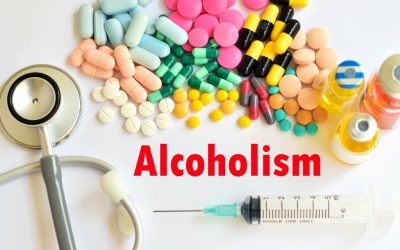Narcissistic individuals often use alcohol as a coping mechanism to deal with underlying insecurities, anxiety, or depression. Alcohol can temporarily boost their confidence and help them escape from feelings of inadequacy. However, this can create a vicious cycle where drinking covert narcissist alcoholic exacerbates narcissistic tendencies and vice versa. When alcohol abuse and narcissistic personality disorder (NPD) collide, the ramifications can be significant, affecting both personal relationships and mental health.

How Alcohol Abuse and Narcissistic Personality Disorder Interact
It’s the excessive or problematic use of alcohol that can lead to physical and emotional dependence, health issues, and social problems. Picture a Jekyll and Hyde scenario where charm transforms into chaos, fueled by the intoxicating mix of narcissism and alcohol. It’s a volatile cocktail that can turn a seemingly charismatic individual into a walking disaster. As we’ve explored the intricate dance between narcissism and addiction, it becomes clear that this is a complex issue with no easy solutions.
How Charlie Health can help
“Object love” is one way to describe relationships narcissists have with others. Instead of genuinely valuing others, they see friends and loved ones as objects through which they experience various aspects of self-love. Individuals with these types of relationships may not consider how their actions affect others.
Moving Beyond Narcissism
An example of this would be if the individual went to a party and stated they were only having a couple of drinks but late drinks more than intended. Always seek the advice of a physician or other qualified health provider with any questions you may have regarding a medical condition. Never disregard professional medical advice or delay in seeking it because of something you have read on this website. This website does not recommend or endorse any specific tests, physicians, products, procedures, https://7lights-eg.com/2021/08/09/alcoholism-dementia-understanding-the-connection/ opinions, or other information that may be mentioned on the Site. Reliance on any information provided by this website is solely at your own risk.

- Now, imagine being in a relationship with someone who combines the worst aspects of alcoholism and narcissism.
- Alcohol can have a profound impact on individuals with narcissistic personality disorder (NPD).
- There are no medications to treat NPD, but if you also experience depression or another mental health condition, a doctor may prescribe medications to treat the other condition.
- Narcissists can become alcoholics, and alcoholics can be especially narcissistic when they drink.
- It’s a deeply ingrained condition that can affect nearly every aspect of life, from self-image to social connections.
Both conditions can lead to self-absorbed behavior, difficulty maintaining healthy relationships, and a tendency to avoid or mask feelings of shame. People with NPD may use alcohol as a coping mechanism to numb their underlying insecurities or boost their sense of grandiosity. The relationship between Narcissistic Personality Disorder (NPD) and alcoholism is complex, and while one does not directly cause the other, they often reinforce one another.

Of course, many people with alcoholism also live with other mental health conditions, but narcissism has particular connections with alcohol misuse. Narcissistic personality disorder is a mental illness characterized by an inflated sense of self-importance, lack of empathy, and a constant need for admiration. On the other hand, alcohol use disorder is a substance use disorder involving an unmanageable compulsion to drink and the inability to stop, despite its negative consequences. It is important to recognise that exhibiting narcissistic behaviour while drunk does not inherently mean that a person has NPD.
As Someone Living With NPD and AUD
They might avoid events where their substance use could be noticed or questioned. It’s a bit like a stage actor refusing to perform without their costume – they’re afraid of being seen without their carefully crafted persona. Outpatient alcohol rehab helps you maintain alcoholism daily life while receiving therapy, family support, and aftercare for lasting sobriety. Treating SUDs and mental illnesses frequently involve using cognitive-behavioral therapy (CBT).